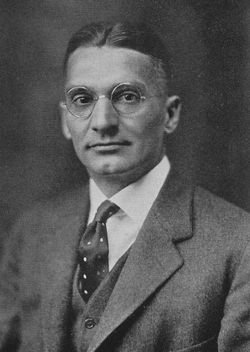Home Gardening
An agricultural community
Historically, most inhabitants of Rensselaer County were farmers. From the Native Americans growing corn, squash, and beans for their own consumption, to the Dutch settlers after 1700, and to other waves of European immigrants throughout the early 1800s. These early inhabitants of Rensselaer County attempted to produce what their families needed to eat, but as the 19th century progressed, cities grew and in turn, people could no longer grow their own food in ways that they had done so previously. As a result, there was an increased demand for agricultural products. Some farmers expanded; at first selling the surplus of whatever they grew and then growing specifically for market. Grains, potatoes, and flax and wool (for the textile mills) were some of the first cash crops, as well as a few specialty crops like honey and strawberries. Surplus milk was made into butter and cheese, to be sold locally before there was refrigeration. Some people became market gardeners. Entering the 20th century, many Rensselaer County farmers turned to dairy.
Farmers became businesspeople, with farming as their occupation. There were occasional “gentleman farmers” who had another occupation and farmed out of interest. Of course, then as now, many rural and suburban families still had gardens, raising much of the produce they needed for day to day use, preserving the surplus for the winter.
During World War I and World War II, the government encouraged citizens to grow their own vegetables, worried about food shortages. The U.S. only fought in World War I from April to November 1918, but in that short time, the federal government began a program to encourage “victory gardens.”
Cadwallader Kelsey
As the century progressed, more and more people grew their own vegetables out of the desire for fresh food, and perhaps to save money, rather than necessity. Most home gardeners didn’t need or want to invest in tractors or other large machinery. An inventor with roots in the automotive industry came to Troy about 1935 and solved that problem. Cadwallader W. Kelsey, born in Switzerland in 1880, first invented the Kelsey Skycar, a car which took off like a helicopter and could land in a backyard. Once in Troy, he began to import rototillers from Europe. Discovering that those tillers didn’t work well in rocky American soil, he invented his own, and began a manufacturing company in Troy, known as the Rototiller, Inc., with financial support from George B. Cluett II.
World War II gave another big push to home gardening and gave the “victory garden” movement plenty of time to take root. During the war, Rototiller, Inc. turned to production of surveillance instruments for the military, but post-war it focused on small rototillers for home gardeners with design features for the walk-behind tillers like rear mounted tines and self-propelled wheels. By the 1950s, Rototiller, Inc. had numerous patents on small garden power equipment of all sorts, invented in-house by Kelsey and George Done.
In 1959, Kelsey retired and sold Rototiller, Inc. After having a couple of out-of-town owners, local men George Done, who had been Kelsey’s right-hand man, Pete Maraj, and Myers Henderer, Jr., with the help of Carl Grimm, who would become a partner, bought the company and renamed it Watco. Allen Cluett and Lyman Wood were instrumental in getting the new venture and the new model tiller, the Trojan Horse (which Done had developed), off the ground. In 1968, the name changed again to Garden Way, and Dean Leith joined the firm, becoming President in 1973. The tiller became the “Troy Bilt,” and the company grew and grew.
Garden Way keyed into the nationwide “back-to-the-land” movement, expanding its offerings to include cider presses, kitchen worktables, and solar green houses, to name a few. Garden Way Publishing issued works on gardening, self-sufficiency, and alternate energy.
In the 1990s, Garden Way employed over 1,000 people, mostly in its factory in Lansingburgh. The company filed for bankruptcy in 2001 due to a number of factors.
The Troy-Bilt brand is now owned by M.T.D., based in Ohio, which also makes Cub Cadet, Yard Man, and Bolens.





